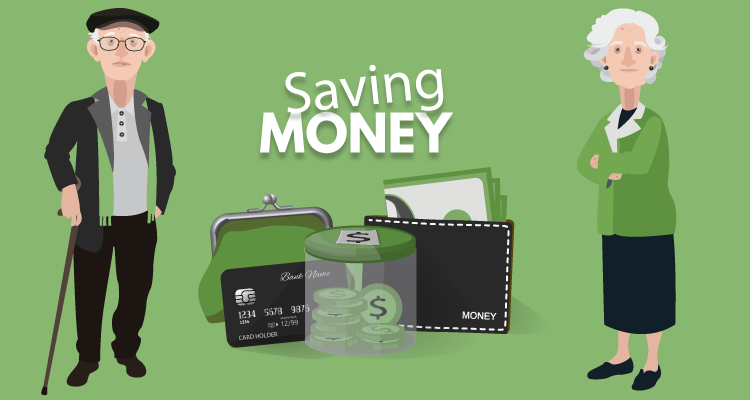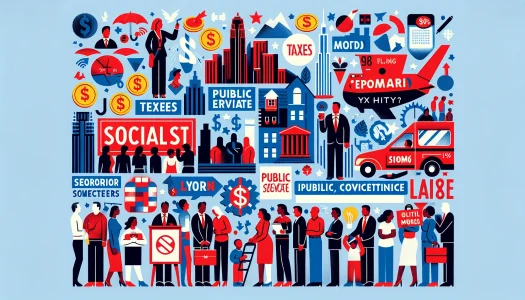If you want to improve your personal finances, whether that means paying off your debts, saving for a house, or starting a retirement fund, the first step is always to get your personal budget under control. By examining and reevaluating your regular expenses, you can cut costs and save more money every month—and now that there are so many free, convenient budgeting apps out there, it’s easier than ever to track your expenditures and eliminate expenses.
The trouble is, too many first-time budgeters end up analyzing, but not changing, their spending habits, or focusing only on one area to improve. If you want to see the best results, you need to make improvements to every category in your personal budget.
Table of Contents
ToggleThese are some of the best ways to eliminate expenses and get your budget under control.
Housing Expenses
Experts recommend that no more than 25 percent of your salary be spent on your rent (or mortgage). If you’re currently paying 25 percent or more, you should consider slashing your costs in one or more of the following ways:
- Move to a less expensive area. First, consider moving to a less expensive area. Moving may be a hassle, costing you a few hundred dollars in transportation expenses, and putting you further from work and your neighbors, but if the move saves you a few hundred dollars each month, it will be worth it in the long run. Consider downsizing your space as well; many people end up buying more house, or renting more apartment space, than they truly need.
- Negotiate your rent. Have you considered negotiating with your landlord to lower your rent outright? If you’re a reliable tenant, with a history of on-time rent payments and few, if any, problems, chances are good your landlord will be willing to make some sacrifices to keep you around. Explain that you’re trying to save some money, request a reasonable discount, and you might get the price break you need.
- Find a roommate. In many situations, it’s entirely legal for renting tenants to sublet their apartments to new tenants; however, you’ll need to secure permission with the landlord ahead of time. If you’re the homeowner, you don’t need to secure any additional permission; just make sure you have a good homeowner’s insurance policy in place to cover you in the event of an accident or injury. This move could instantly slash your housing expenses in half.
Transportation Expenses
The next biggest portion of your budget is likely transportation, including car payments, gas, insurance, and other expenses that get you from point A to point B. Here’s how to control your costs in this area:
- Refinance your auto loan. First, if you drive a car and you plan on keeping it, consider refinancing your auto loan. You may be able to secure more favorable terms, or a better interest rate, which can instantly save you money in the long term (and might be able to cut your monthly payments drastically, if you choose to extend the loan period).
- Take public transportation. The American Public Transport Association estimates that switching to public transportation could save the average commuter upwards of $10,000 a year. Imagine what you could do with that extra money. Assuming your city has a solid public transportation network in place, you’ll likely be able to purchase an annual pass for a reasonable amount, and use buses, subways, and other means of transport to get anywhere you need to go.
- Carpool or bike. If you don’t like the idea of public transportation, or if you want to eliminate expenses even further, consider carpooling to your target destinations or riding your bike. Bicycles are dependent on good weather and reasonable city infrastructure, but they’ll save you thousands of dollars a year—and keep you in good shape at the same time.
- Rethink your insurance. You’ll also want to rethink your car insurance policy. If you currently have a spouse with a separate policy, consider joining policies. No matter how long you’ve been with your current company, consider shopping around; you never know when a competitor might be willing to offer you a better rate.
Groceries Expense
Depending on the size of your family, you’re likely paying hundreds of dollars per month on groceries, but are you spending that money wisely? Here are some fast ways you can eliminate expenses with your grocery bills:
- They’re popular for a reason. Some consumers have made entire careers out of “couponing” and teaching others to coupon effectively. The goal is to find the best places for coupons, and redeem those coupons to earn far cheaper groceries and other items than you’d ordinarily be able to find, sometimes scoring freebies or near-freebies in the process. The major downside to this strategy is the amount of time it takes, both in learning how to coupon effectively and to do it on a daily basis.
- Comparison shop. Get to know your regular buys, and what they go for at your favorite store. Then, head to other stores in the area and get a feel for who offers which items for the least amount of money. It might add a stop or two to your routine, but you’ll end up saving lots of money in the process.
- Check unit prices. Unit prices tell you how much you’re paying per ounce, or per other unit of food, and can help you make sense of different brands, which may offer very different prices for different sizes. Unit prices are usually listed on the price tag, along with the total price, and as a general rule, the lower unit price is the better bet.
- Avoid food waste. It’s a simple strategy, but an effective one. When meat and other freezable items are on sale, buy up and keep them frozen until you’re ready to use them. Otherwise, only buy what you need, and make use of every bit of the food you buy. You’ll be amazed how much less food you’ll have to buy when you throw away less of it—cumulatively, Americans throw away more than $165 billion of food every year.
Utilities Category Expense
Most consumers see utilities as an unpreventable expense. While that may be, to some extent, true, that doesn’t mean you can’t take measures to lower your utility costs overall:
- Make your space more energy efficient. There are some cost-intensive strategies that can make your home more energy efficient, reducing the amount of money you spend on heating and air conditioning, but you don’t have to invest in new windows or redo your entire home’s insulation to see benefits here. Instead, focus on solutions that cost you only a few dollars and a bit of time, such as applying weather stripping around your windows and doors, or applying plastic insulation around your windows in winter time.
- Lower your utility use. You can also reduce your utility expenses by keeping your thermostat a bit higher in summer and a bit lower in winter, and carefully monitoring how much water you use for things like showering, laundry, and washing dishes. A few lifestyle tweaks here, which you probably won’t even notice, can shave several dollars off your monthly utility bills.
Debt Payments
If you’re working on paying off your debts, you can save money (and pay off your debts faster) with these strategies:
- Stop the bleeding. First, refuse to take on any more debt. If you have credit cards, commit to reserving them only for emergencies. Avoid any major purchases, such as a home or a car, until your debts are paid off—or at least under control.
- Renegotiate your interest rates. Most consumers don’t realize that you can renegotiate the interest rates on your credit cards. You won’t always be successful in the attempt, and you might only shave a point or two from your original interest rate, but even a slight improvement here can reduce your monthly payments and make you debt-free sooner.
- Consolidate your loans. Finally, consider consolidating your loans and debts to one source (the one with the lowest interest rate). You’ll pay less, and you’ll have an easier time managing your payments since they’ll all be going to the same place.
Subscriptions and Entertainment Expenses
Most of your subscription and entertainment costs are wholly unnecessary, so your savings here will come down to how much you’re willing to sacrifice in order to achieve your financial goals. For items that you don’t want to cut out entirely, consider seeking a more budget-friendly alternative; for example, instead of paying a cable bill that costs you more than $60 every month, consider switching to a streaming service that costs $10 or less.
No area of your budget should go neglected; each area may add hundreds of dollars to your expenses every month, so if you manage to cut costs in each area, you’ll end up with far more money leftover at the end of each month. Once you have your introductory budget in place, you can work on other financial goals, including generating more income and putting all that extra money to good use.














